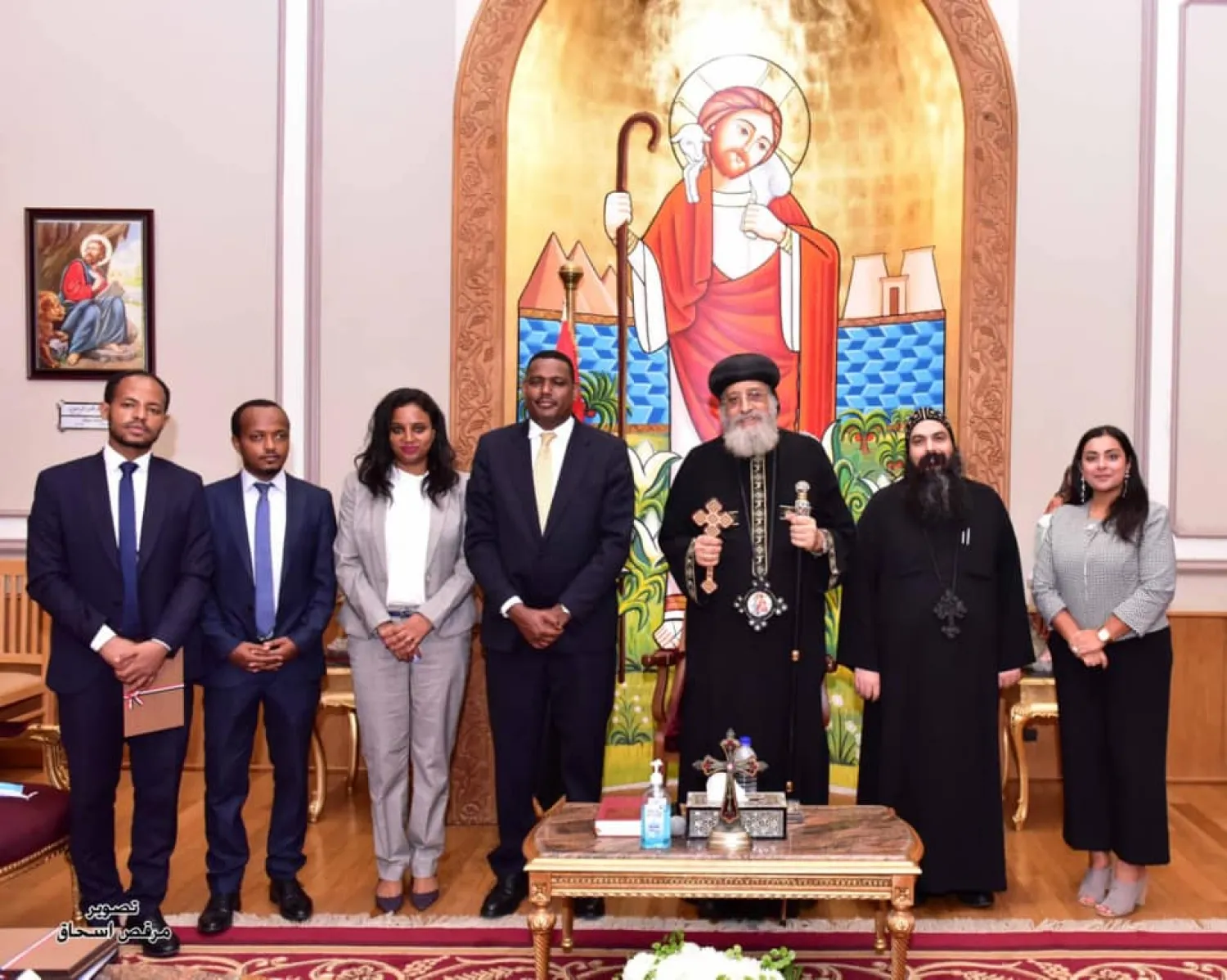Coptic Orthodox Pope Tawadros II is confident the negotiations between Egypt, Ethiopia and Sudan on the Grand Ethiopian Renaissance Dam (GERD) will move forward towards a solution that is appropriate for all.
Speaking during his meeting with Ethiopia’s new ambassador in Cairo, Markos Tekle, the Pope said that he aims to gradually change the misconceptions between both peoples and support the relations to facilitate the negotiations, which are expected to resume soon.
Pope Tawadros II described the Nile River as “God’s gift for all of us, same as sun and air.”
The Pope praised the strength of the relationship between Egypt and Ethiopia, as well as between the Egyptian and Ethiopian churches, referring to his visit to Ethiopia and the loving relationship he has with the patriarch of the Ethiopian Orthodox Tewahedo Church Mathias.
The Pope also stressed the important role the Ethiopian ambassador will play to boost ties between both countries and the two peoples during his term, according to a statement issued by the spokesperson of the Coptic Church.
Egypt, Sudan and Ethiopia have been in negotiations over GERD for years, with the latest round sponsored by the African Union (AU).
The countries have not reached an agreement yet, as the path of negotiations remains unclear due to the countries' failure to reach a unified draft on contentious issues which should be presented to the AU presidency.
Egypt and Sudan stress the necessity of reaching a binding agreement that guarantees the rights and interests of the three countries, in accordance with the Declaration of Principles Agreement signed in 2015 and the principles of international law.
Earlier, Ethiopia announced the completion of the first filling of the dam, without agreeing with Egypt and Sudan, which angered the two downstream countries.
Meanwhile, the Ethiopian ambassador affirmed his country's appreciation for the recent position of President Abdel Fattah el-Sisi on Ethiopia's right to development.
He told Egyptian media that his role as a diplomat is to create agreement between the two countries, noting that he will seek to support relations and facilitate negotiations on the Renaissance Dam.
During his video-conference speech to the 75th UN General Assembly, Sisi called for an agreement on the GERD, stressing that the negotiation period should not be extended indefinitely in an attempt to impose a fait accompli.









